
Mosquito
Mosquito
Mosquito
When you think of 'mosquito', you probably imagine a creature that buzzes annoyingly on summer nights and causes itchiness and irritation when it bites. Many have experienced frustration trying to swat one only to have it escape. However, few people are familiar with the actual characteristics and ecology of mosquitoes. This article aims to explore the lesser-known aspects of mosquitoes in detail.
Mosquito Basic Infomation
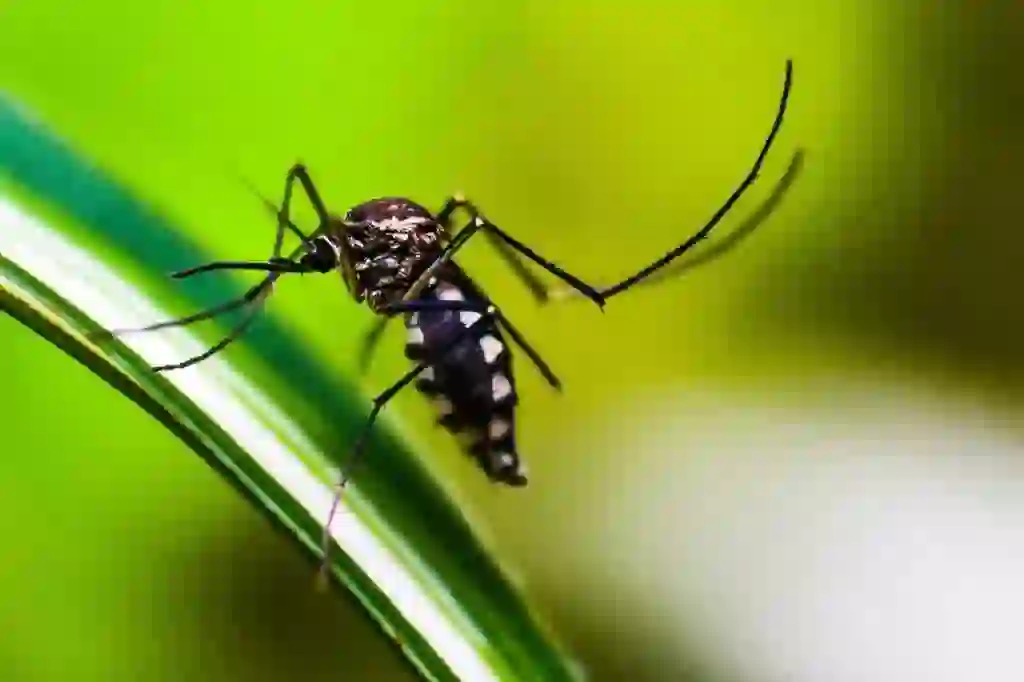
Order: Diptera, Suborder: Nematocera, Family: Culicidae
Typically less than 15mm in body length. Weight is 2–2.5 mg, increasing to 4–7.5 mg when full.
Although the term 'mosquito' is used broadly, there are approximately 2,500 to 3,000 species of mosquitoes.
In Japan, about 100 species of mosquitoes are found.
The most common mosquitoes we encounter are the Asian Tiger Mosquito and the Japanese Encephalitis Mosquito.
Mosquitoes lay 150–400 eggs in water, developing into larvae and maturing into adults in about a month. However, under conditions such as high temperatures, they can mature in about 10 days, leading to explosive population increases during hot summers.
Mosquito Q&A

What is the origin of the name for mosquitoes?
There are various theories about the origin of the name for mosquitoes, including that it is an abbreviation of '喧・囂 (kama)', which means noisy or bothersome, or a shortened form of 'かしましき', meaning very noisy.
Another theory suggests that it comes from '細 (ka)', 'kabure' (swelling), 'kayumi' (itchiness), or 'kamu' (to bite).
In any case, it can be said that the name comes from the mosquito's characteristics such as the noise they make when flying, their itchiness, and biting.
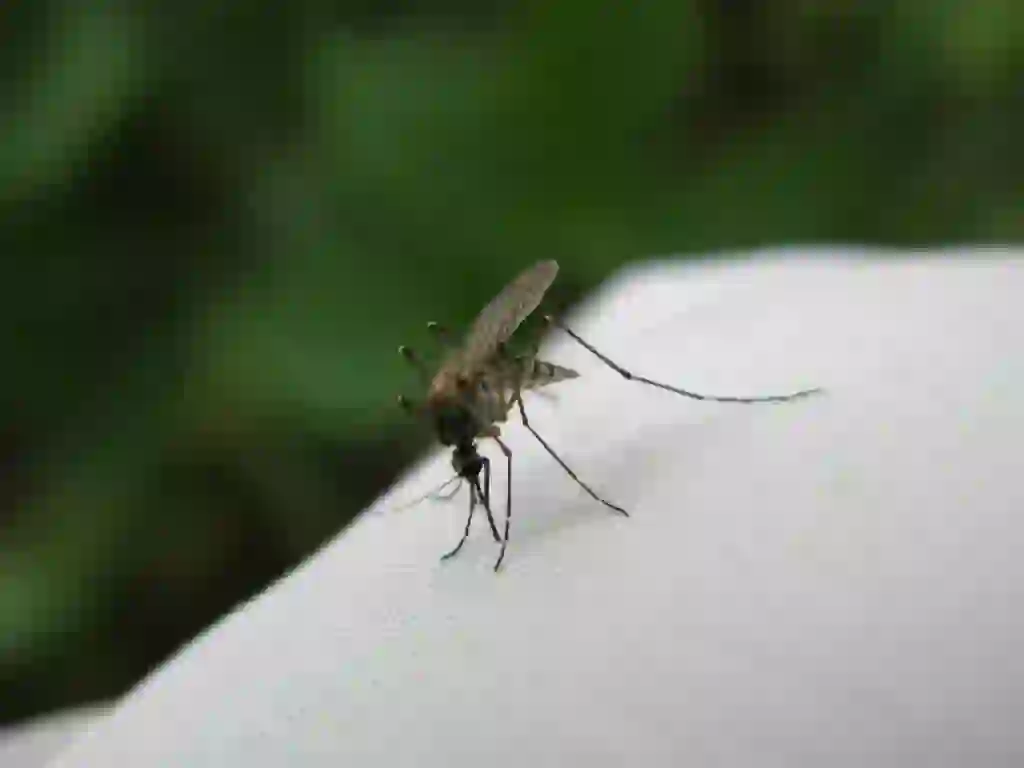
Why do mosquitoes live there?
Mosquitoes are commonly found everywhere, both outdoors and indoors, but they can only lay their eggs in water.
Mosquitoes are holometabolous insects, which means they go through complete metamorphosis from egg to larva, to pupa, to adult, and eggs laid on the water surface release pheromones that induce more egg-laying, attracting more mosquitoes.
Depending on the species, some mosquitoes prefer clean water while others prefer dirty conditions, and some like wide spaces while others prefer narrow ones.
In any case, if you store water, mosquitoes will invariably lay eggs there, rapidly producing more mosquitoes, so it's best not to leave water standing around if you want to keep them away from your home.
Furthermore, mosquitoes invade houses because they are attracted to carbon dioxide.
Not only that, they can also sneak in with laundry or lie in wait at entrances or balconies and come in when people do.
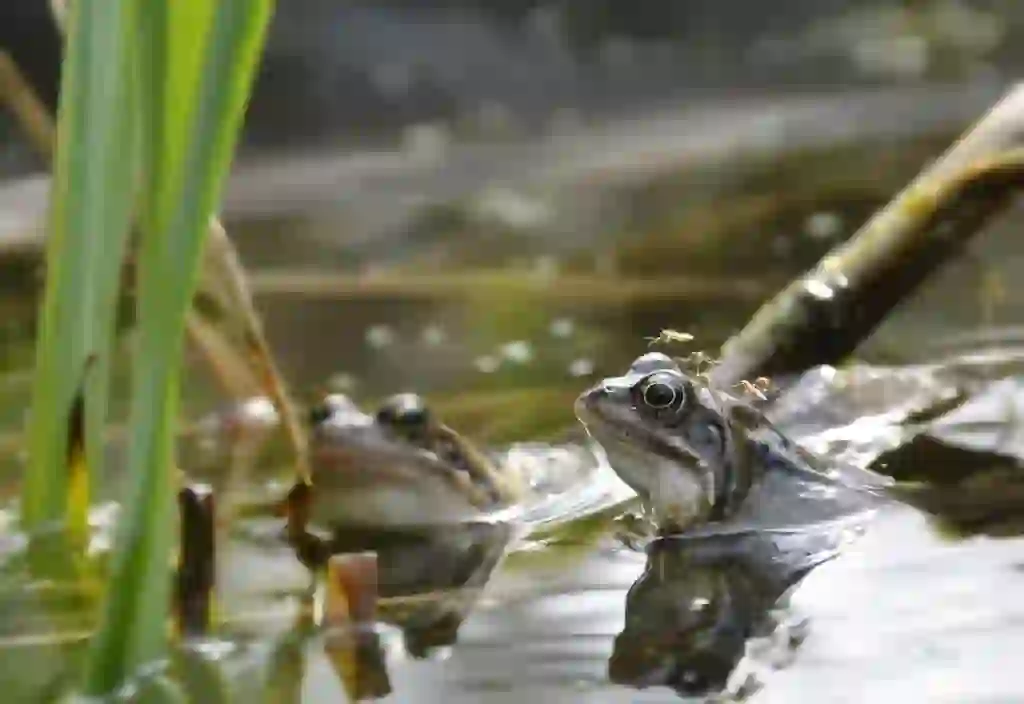
What do mosquitoes eat?
Although mosquitoes are commonly associated with sucking blood, they normally feed on sugars such as plant nectar and fruit juices.
Only females suck blood because they need protein to develop their eggs.
Bloodsucking triggers the maturation of the ovaries and the development of eggs inside the body.
It is said that mosquitoes start sucking blood when the temperature exceeds 15 degrees Celsius, and they are most active in sucking blood when the temperature is between 26 to 31 degrees Celsius.
If the temperature goes higher or lower than this range, they become inactive and often hide in shaded areas.

Why do mosquitoes suck blood?
As mentioned previously, only female mosquitoes suck blood because they need the nutrients found in animal blood to produce eggs.
However, it is not strictly necessary for it to be animal blood.
Experiments in which female Aedes albopictus mosquitoes were fed high-nutrient royal jelly showed that they could produce eggs without sucking blood if they received nutrients equivalent to those in blood.
Also, there is a type of mosquito called 'Ooka' that can produce eggs solely from the sugar found in flower nectar.
The purpose of mosquitoes sucking blood is to reproduce.
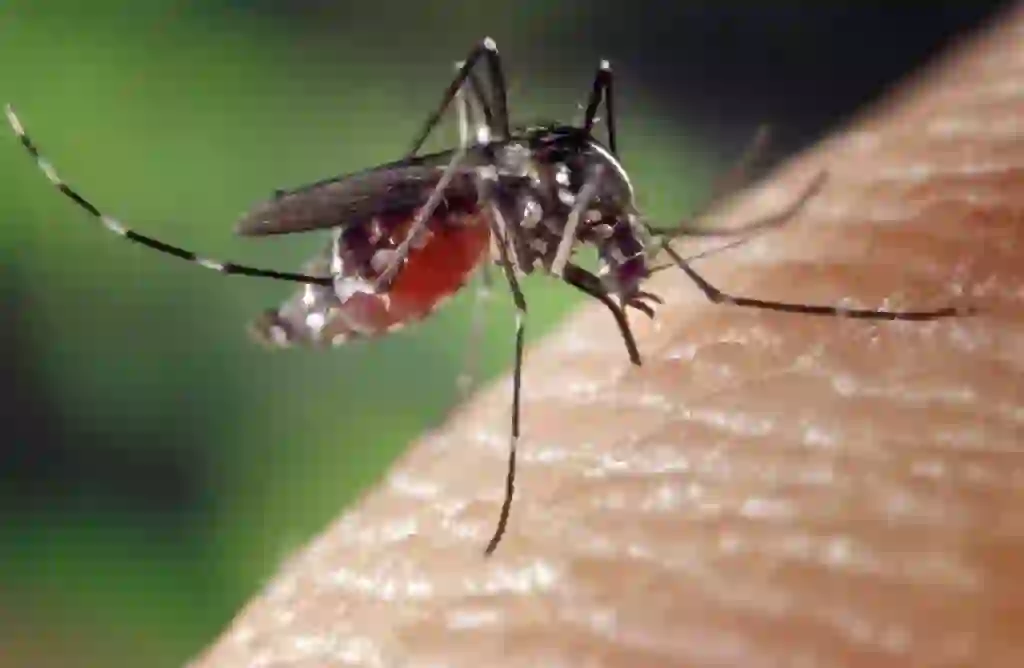
Why do mosquitoes bite multiple times?
You might have noticed that the same mosquito can bite multiple times, not just in one place but several.
Have you ever wondered why they don't just bite once?!
They bite multiple times because they are not yet full.
A female mosquito that has sucked enough blood to be full stops sucking as her ovaries develop and her abdomen fills with eggs.
However, if she does not get enough blood and her ovaries develop only partially, she remains hungry and continues to bite.
If you don't want to be bitten multiple times, you either let them suck enough in one go, or you have to kill them in one hit.
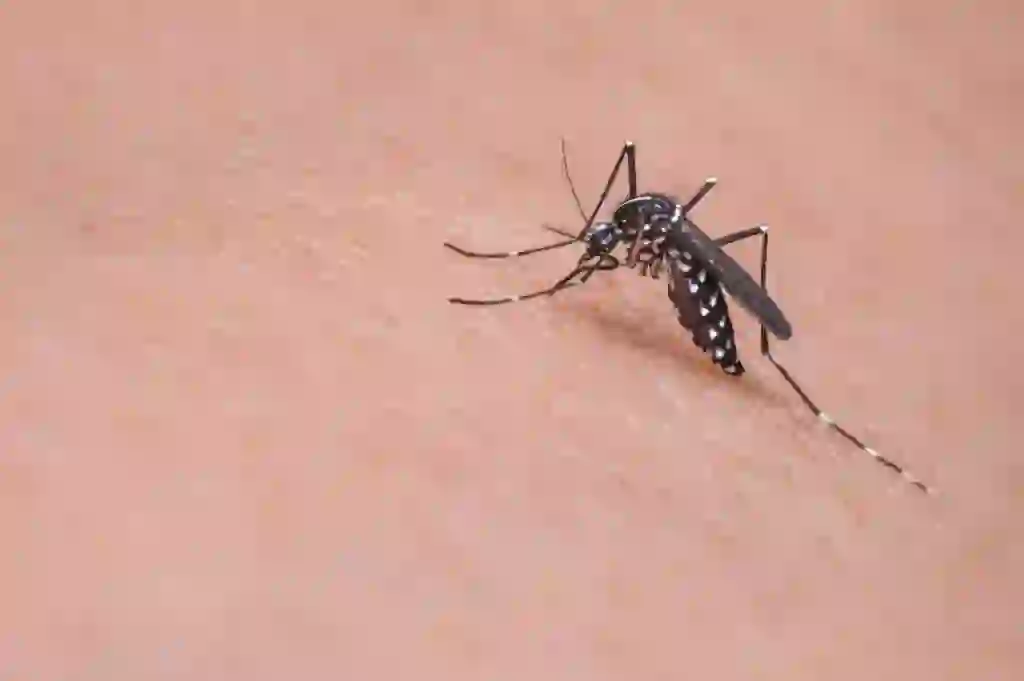
Why does a mosquito bite itch?
Mosquito saliva contains a substance that acts as a local anesthetic.
When mosquitoes suck blood, they inject saliva into the skin through the needle at the tip of their mouth.
The saliva prevents blood from clotting and reduces the pain of the needle.
Over time, the protein in mosquito saliva causes a human allergic reaction, resulting in itching.
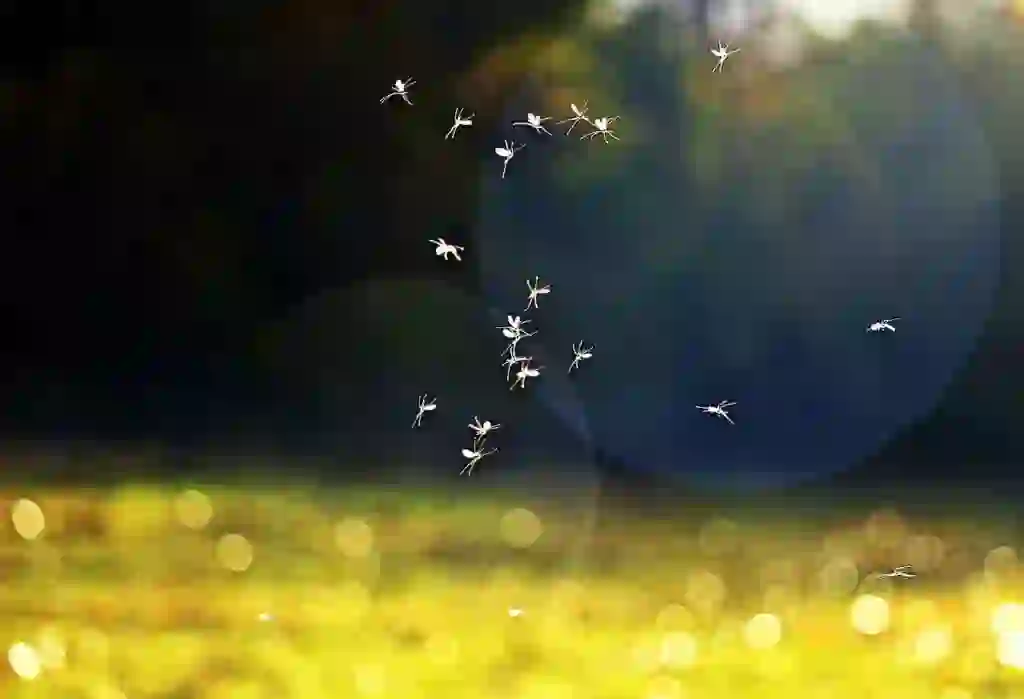
Why is the sound of a mosquito flying annoying?
Mosquitoes make an annoying buzzing sound when they fly.
While this sound is quite unpleasant to humans, it is actually very important for mosquitoes in finding a mate.
When it's time to mate, mosquitoes adjust their wing noise to locate a partner.
Mosquitoes ready to mate increase their wing flapping to three times the normal frequency for females and twice for males, which serves as a signal.
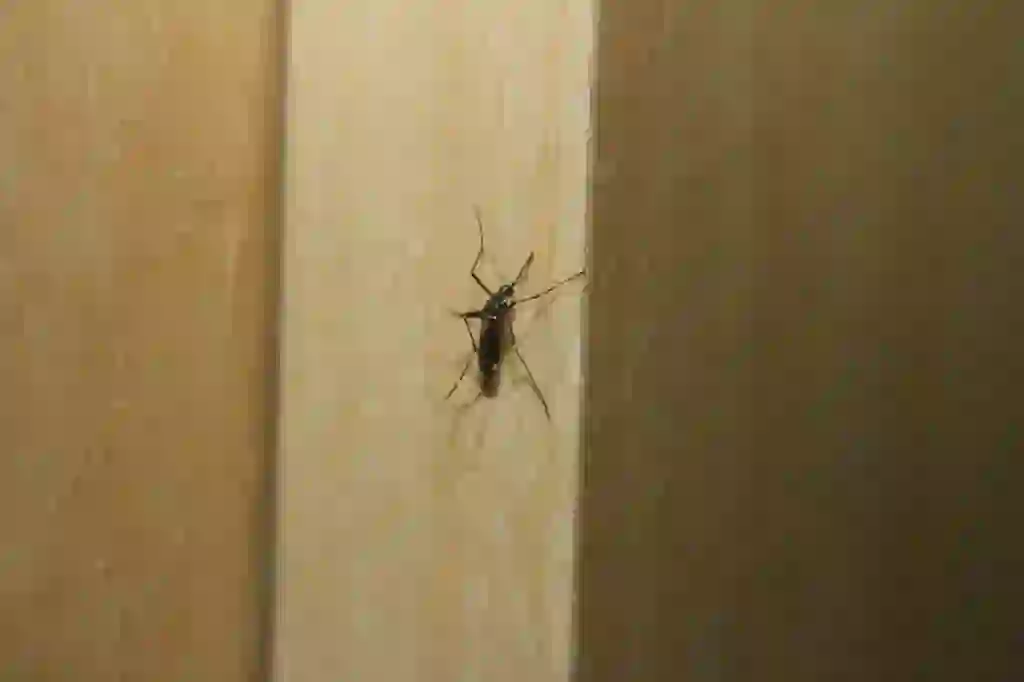
Do mosquitoes hold grudges?
Many people have struggled to swat an annoying mosquito buzzing around them.
According to research by the University of Washington, mosquitoes remember the scent of the person who tried to swat them and avoid them for a while.
The effect lasts for over 24 hours, offering a repellent effect similar to that of mosquito sprays.
However, this effect has only been confirmed in the species Culiseta longiareolata, so it may not apply to other types of mosquitoes.
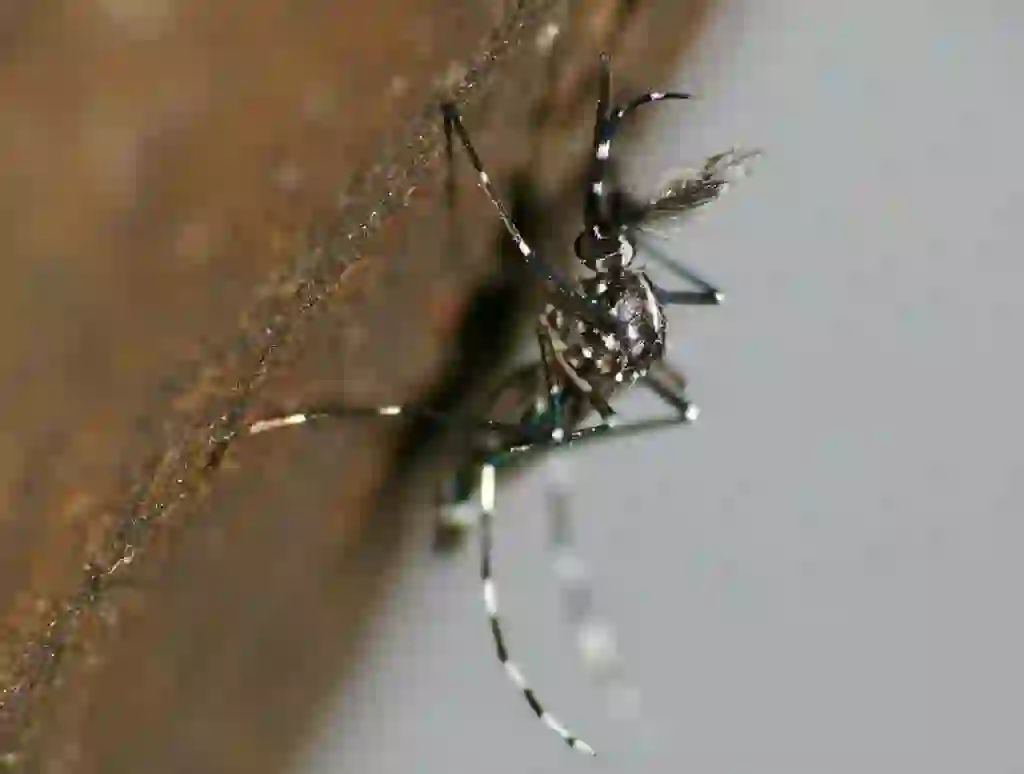
Who is more likely to be bitten by mosquitoes?
Mosquitoes are attracted to carbon dioxide, body heat, and clothing color to find their blood meal.
The strength of these attractants varies from person to person, but susceptibility to bites is genetically determined.
If the attractants produced by a person's body perfectly match the preferences of mosquitoes, they are more likely to be bitten.

What colors do mosquitoes prefer?
Mosquitoes are generally attracted to dark colors.
Although mosquitoes are insects, their eyes are compound, made up of individual units called ommatidia.
This structure allows them to see ultraviolet light, which is invisible to humans, making darker colors more visible to them.
The colors that mosquitoes are most attracted to are black, red, blue, yellow, and white, in that order.
If you want to avoid being bitten by mosquitoes, wearing lighter-colored clothing might be a good idea.
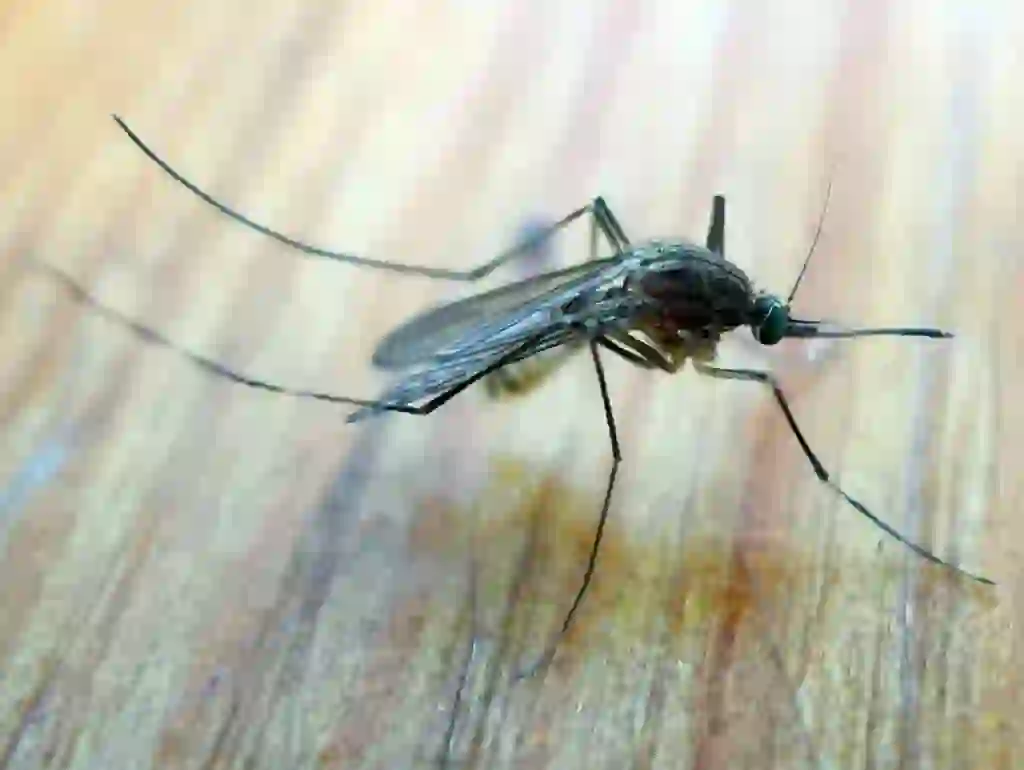
Do mosquitoes have a separate stomach for sweets?
Mosquitoes indeed have a stomach.
They have separate stomachs for their main food, flower nectar and tree sap, and for blood.
The stomach that receives blood digests its nutrients to nourish the eggs, meaning each stomach has a different role.
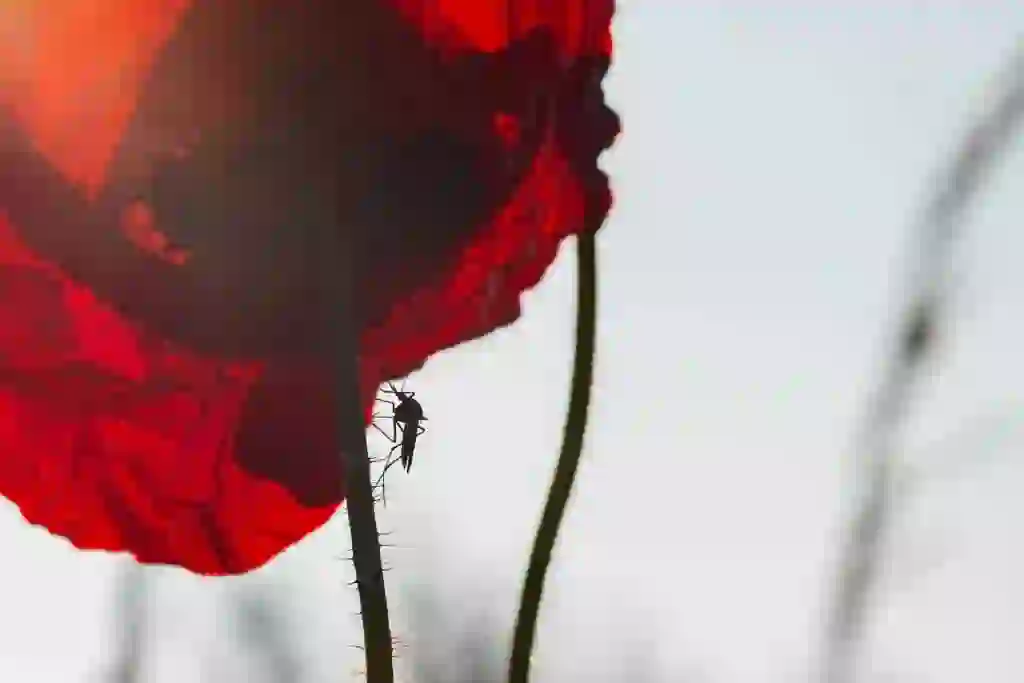
How can you tell male from female mosquitoes?
Mosquitoes are small, but you can distinguish males from females by looking at their antennae.
Males have bushy antennae, while females do not.
Male mosquitoes have bushy antennae to enhance their sensory area to find females.
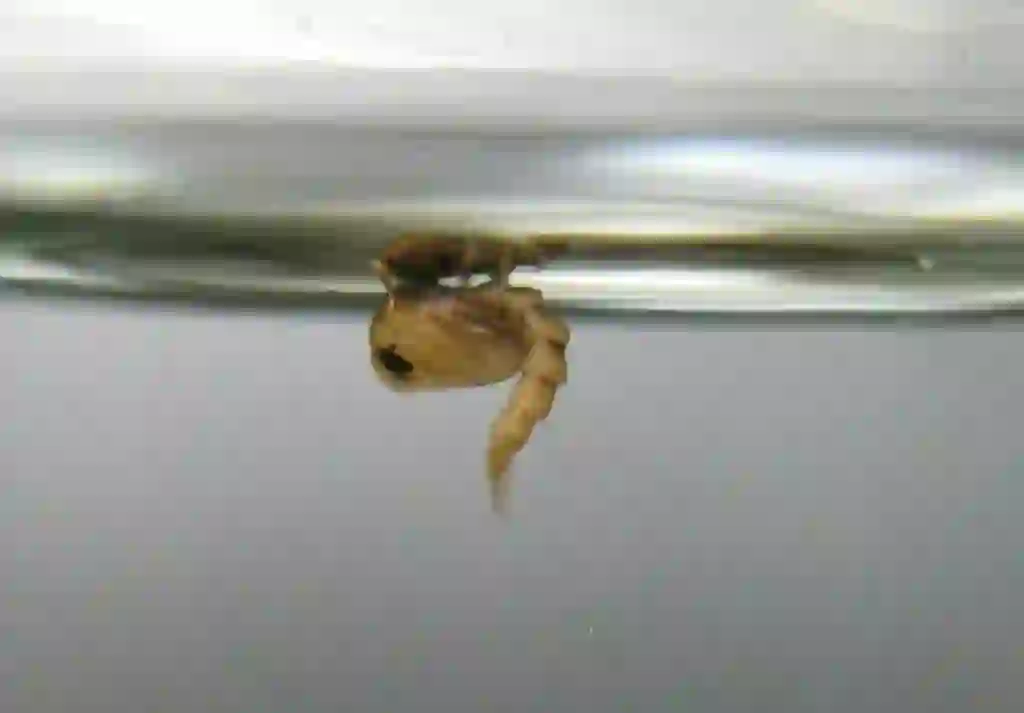
Do mosquito pupae move?
Insect pupae are generally thought to be motionless.
However, mosquito pupae are very active and characteristically jump around.
If you see something jumping around in the water, it might be a mosquito pupa.

Do mosquitoes appear in winter?
Mosquitoes are typically seen as summer insects.
However, mosquitoes born at the end of autumn can survive through winter and live for about six months.
They wait quietly on walls not submerged in water, such as in caves or culverts, for warmer weather to return.
The Aedes vexans species has been confirmed to overwinter, but as global warming progresses, more types of mosquitoes may be able to survive the winter.

Do mosquitoes carry diseases?
Mosquitoes transmit diseases and parasites like malaria, filariasis, dengue fever, and Japanese encephalitis.
However, not all mosquitoes carry diseases.
It is said that only about three species of mosquitoes that are commonly found near homes carry diseases.
While mosquitoes transmit pathogens, they do not die from these pathogens themselves.
Although the lifespan of mosquitoes is generally about a month, those carrying filariasis tend to have a slightly shorter lifespan.

What would happen if mosquitoes disappeared from the Earth?
Mosquitoes are quite low in the food chain, so their disappearance might not seem to have a big impact, but if all mosquitoes were eradicated, some plants would go extinct due to the lack of pollen transfer, and materials for studying diseases like malaria would be lost.
However, this impact would be temporary, as other organisms would likely compensate for the loss of mosquitoes in the long run.
In some regions, mosquitoes are used as food, and mosquito burgers, for example, are considered a protein-rich and nutritious dish, more so than beef burgers.
Mosquitoes also have abilities like detecting carbon dioxide and high body temperatures, locating capillaries with ultrasound sensors, and having compound eyes with a 360-degree view and the ability to distinguish ultraviolet light, which are superior to human eyes.
These functions contribute to the development of cutting-edge microtechnology in fields like medicine and physical engineering.
Even in areas we humans are not aware of, mosquitoes may be playing a role in maintaining the ecosystem.

Would you like to become a part of the 'Animalbook.jp'?
Turn your knowledge into Q&A and share it with the world. ※Publication will be activated after purchase. Let's share information together!
Mosquito Type of List
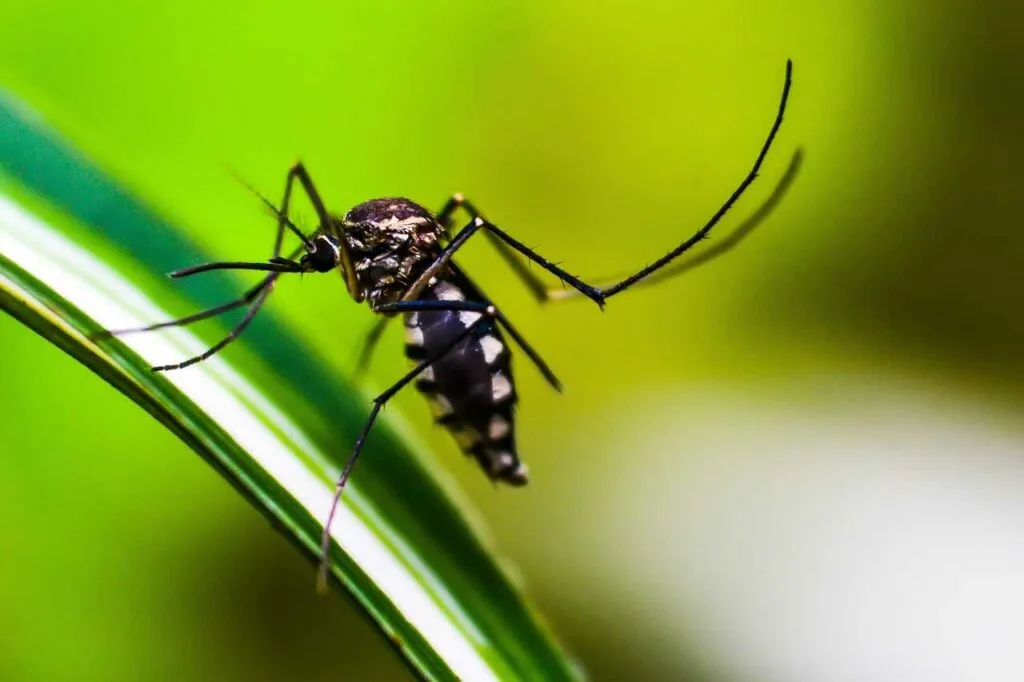
- Asian Tiger Mosquito
- Japanese Encephalitis Mosquito
- Rustic Mosquito
- Yellow Fever Mosquito
- Western Encephalitis Mosquito
- House Mosquito
- Saltmarsh Mosquito
- Anopheles Mosquito
- Malaria Mosquito
- Forest Mosquito
- Aedes Mosquito
- Culex Mosquito
Information
Congratulations! You are the first commenter!

Create Your Favorite List!
Mosquito
Save the animals you love! Build your own list to quickly revisit your favorites later.

Would you like to leave a comment?
※Please note: This is for the purchase of rights to post comments within the article.
Find Your Favorites!
Our shop offers a unique and attractive selection of goods themed around various animals.
Mosquito References

- ・ますますざんねんないきもの事典 株式会社高橋書店 2021年4月25日発行
- ・きっと誰かに教えたくなる蚊学入門-知って遊んで闘って- 株式会社緑書房 2021年6月30日 第1版発行
- ・あなたは嫌いかもしれないけど、とってもおもしろい蚊の話 株式会社山と渓谷社 2019年9月10 初版1版発行
- ・Wikipedia https://ja.wikipedia.org/wiki/カ
- ・おしごとはくぶつかん https://oshihaku.jp/nenkan/page/14377023
- ・SHARP https://jp.sharp/kuusei/trivia/
- ・アース製薬 https://www.earth.jp/gaichu/knowledge/ka/
- ・KINCHO https://www.kincho.co.jp/gaichu/seitai/ka.html
- ・語源由来辞典 https://gogen-yurai.jp/ka/#:~:text=蚊の語源・由来,多くの説がある。
- ・Gigazine https://gigazine.net/news/20141001-world-without-mosquitoes/
Mosquito Introduction of media used

出典:https://pixabay.com/images/id-4998145/

出典:https://pixabay.com/images/id-2437897/

出典:https://pixabay.com/images/id-2452343/

出典:https://pixabay.com/images/id-6785902/

出典:https://pixabay.com/images/id-1332382/

出典:https://pixabay.com/images/id-719613/
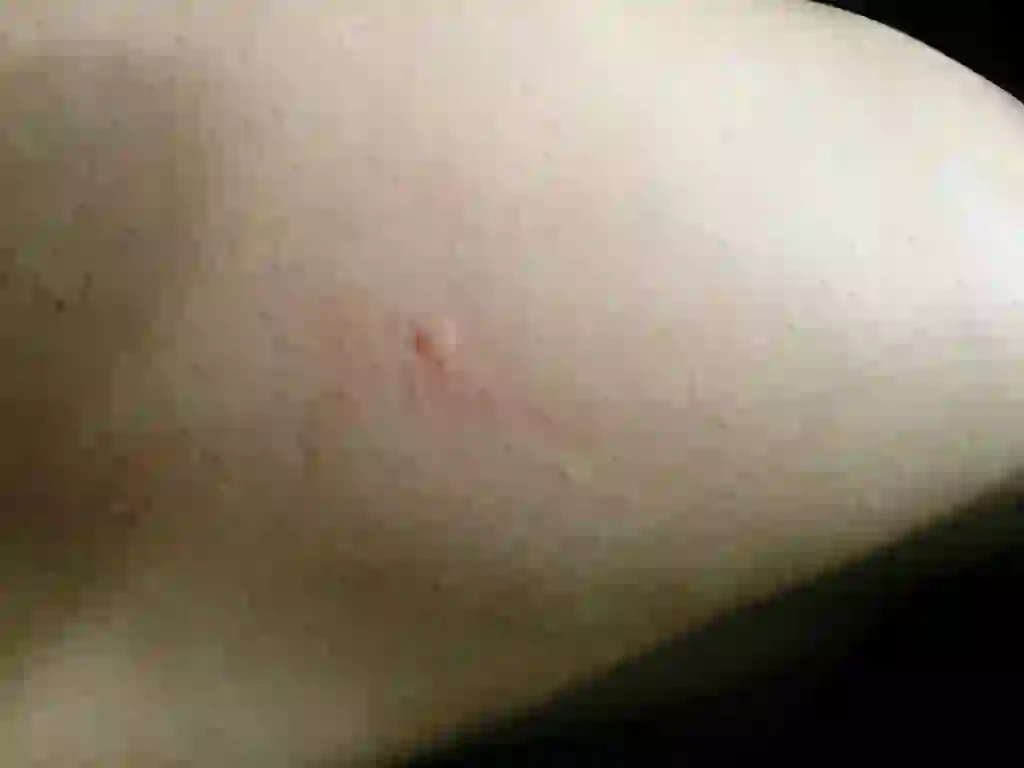
other
出典:https://commons.wikimedia.org/wiki/File:Mosquito_bite.jpg

出典:https://pixabay.com/images/id-2230171/

出典:https://pixabay.com/images/id-347201/
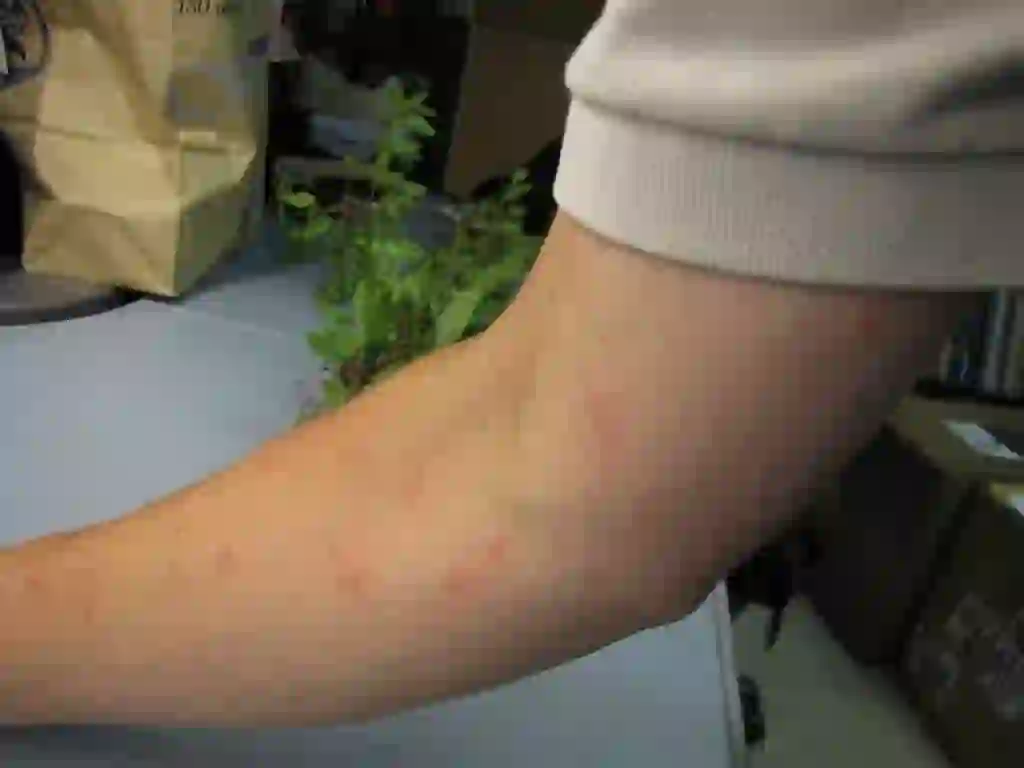
other
出典:https://commons.wikimedia.org/wiki/File:Mosquito_bites_(5958381111).jpg

other
出典:https://www.pexels.com/photo/person-in-black-crew-neck-t-shirt-and-blue-denim-jeans-4066293/

出典:https://commons.wikimedia.org/wiki/File:Mosquito_Pupa_2.jpg

other
出典:https://commons.wikimedia.org/wiki/File:4. Protected from mosquito bites (25972901573).jpg

出典:https://unsplash.com/photos/y2RKN84Me5g

Help Enrich Our Animalbook.jp with Your Media!
We are constantly looking to expand and enrich our Animalbook.jp with amazing photos and videos of animals. If you have any media that you'd like to share, please contribute and help us showcase the beauty and diversity of the animal kingdom. Your submissions will be credited and featured in our encyclopedia, reaching a wide audience of animal lovers.


















